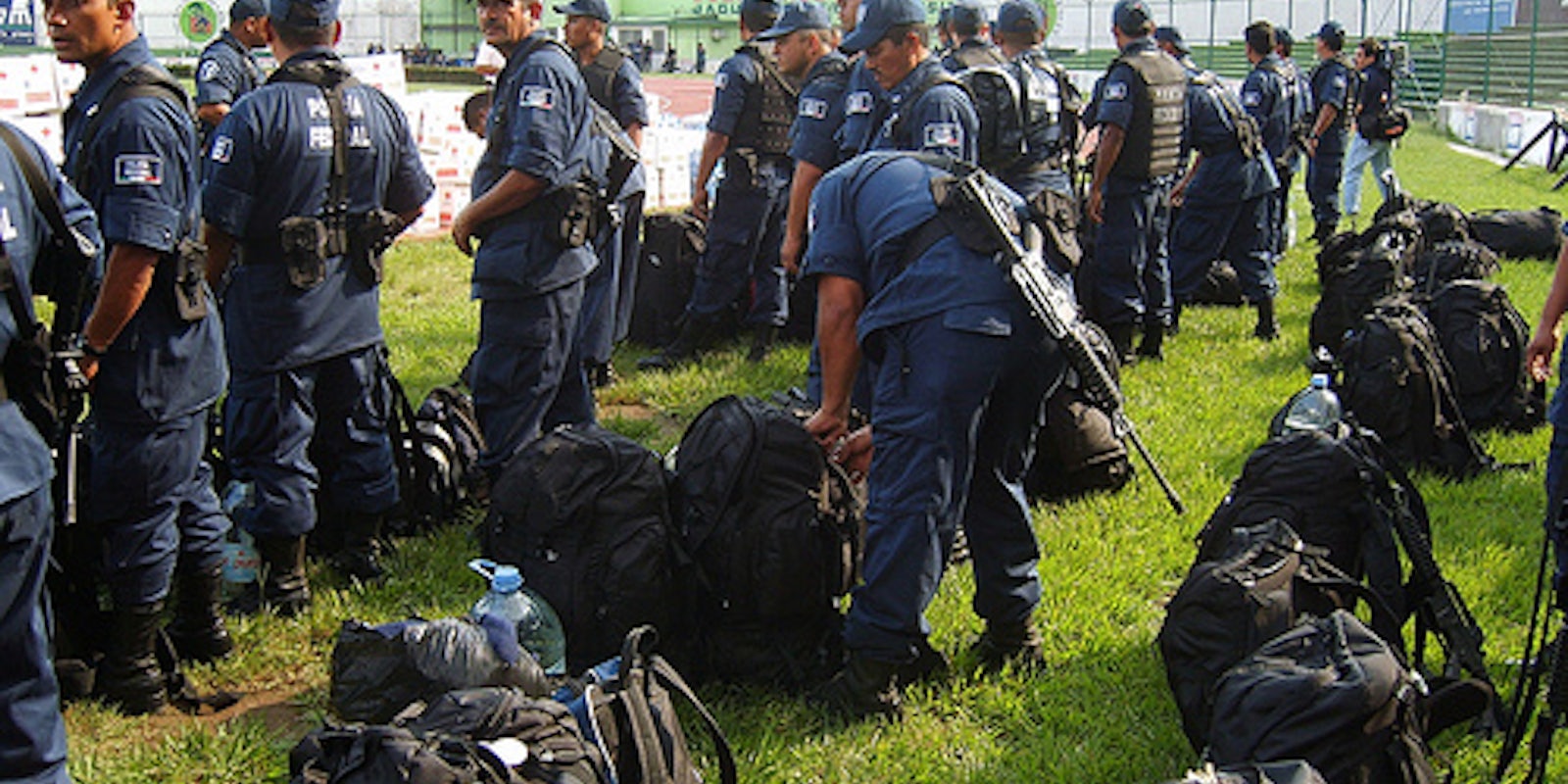Bloggers and social media users released a so-called Twitter manifesto after a murder Wednesday, calling on the Mexican government to solve the four social-media murders and protect their freedom of speech.
“The criminal groups attempt to restrain our voice… to kidnap us and carry out criminal atrocities or to make direct threats against our companions,” said the manifesto, which was released in both Spanish and English on Wednesday.
“This constitutes a flagrant threat against the only freedom left to us, now that the local, state and federal governments are indifferent to our demands, and without even bothering to verify they ignore the facts that we report on our social networks. In summary, we have been abandoned to our fate in this unequal fight of free citizens against the drug traffickers.”
On Wednesday, the decapitated body of a man was found in Nuevo Laredo with a note saying he was a frequent poster on a Mexican crime Web site. Three other tortured and mutilated corpses were found in Nuevo Laredo with similar notes in September.
While only one of the victims’ identities has been confirmed, the killings are seen as a clear-cut message to people who post information about Mexico’s violent drug cartels online.
The note found with the body on Wednesday said the victim was known online as Rascatripas, which translates as “Scraper” or, literally, “Fiddler.”
“This is only going to get worse,” Carmen A. Medina posted in a Twitter discussion of the manifesto.
Mexicans have frequently turned to online forums to share information about the drug cartels as mainstream news media sources have increasingly succumb to threats and bribes and have backed off covering Mexico’s drug war, which has claimed more than 43,000 lives since 2006.
Unlike the role social media played in the Arab spring uprisings in northern Africa and the Middle East, social media about the Mexican drug cartels is often seen as information needed for survival—with few calls for systematic change or revolt.
Blogs, Twitter and online message boards are all used to post warnings about cartel activity and areas people should avoid.
“What are people doing in the face of the lack of information, the kind of information you need to make decisions: Where can I drive? Can I leave the house?” Juan Carlos Romero, who helps lead the media freedom group Article 19, told USA Today. “People are forging new channels of communication on the Internet, social networks, Twitter, blogs, Facebook.”
Indeed, Rascatripas’s last post, made two days before Wednesday morning’s gruesome discovery in Nuevo Laredo, warned that a local highway was “unsafe all the time.” Other recent warnings include a post saying people should avoid talking on cell phones when cartel members are present as they may be abducted on suspicion of making a report to authorities.
Photo by 8zil


